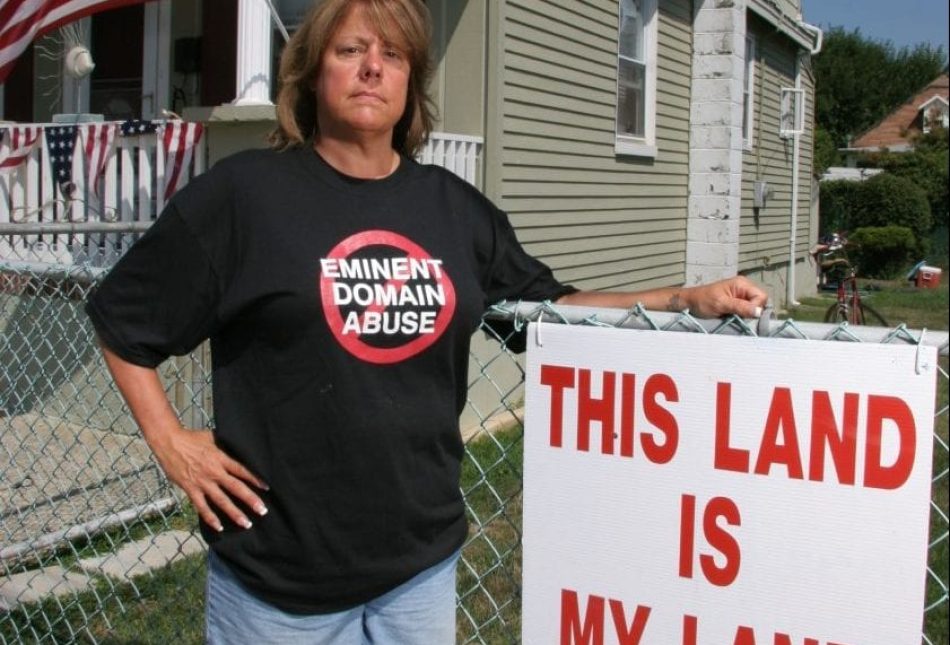Kelo Decision One Year Later: New Mexico Property Owners Still Unprotected

Friday, June 23rd marks the one-year anniversary of the United States Supreme Court’s Kelo v. New London. Unfortunately, earlier this year, Governor Richardson vetoed a bill that would have offered at least some protections for New Mexico property owners against eminent domain.
It is widely known that the Kelo decision effectively reinterpreted the Fifth Amendment’s prohibition on the “taking of private property for public use without just compensation” to mean that any eminent domain taking, even for the express benefit of another private entity was legal as long as the condemning authority had a “plan” and officials believed that some public benefit would result from the taking.
Although a bi-partisan group of legislators including among many others, Justine Fox-Young (R-Albuquerque) and Al Park (D-Albuquerque), supported strong measures to stop eminent domain for private benefit in New Mexico, the legislation that wound up passing both houses unanimously was watered down significantly. In fact, the bill that Richardson vetoed only prohibited the transfer of property from one private interest to another private interest for five years. This provision could have easily been abused by revenue-hungry local governments if they wished to hold seized land in escrow and lease it for five years, at which time they could then sell it to the new developer.
Although, he was, at the time, the only Governor in the nation to have vetoed a bill addressing eminent domain protections – protections supported by 85-90 percent of the American public – he has since been joined by Arizona Governor Janet Napolitano and Iowa Governor Tom Vilsack, also fellow Democrats. Richardson’s veto put New Mexicans in a tougher spot than our neighbors to the west, however. That’s because, unlike neighboring Arizona where voters can use the initiative and referendum process as a check against their government officials, New Mexicans must rely on their elected officials to pass legislation to protect property owners.
As he promised in his veto of the eminent domain legislation, Governor Richardson has proposed a task force charged with the duty of “closely examining the Kelo case and recommending any and all fixes to New Mexico law before the next legislative session.” Property owners should be skeptical of this commission. After all, as Charles Kettering, the inventor of the electric starter once said, “If you want to kill any idea in the world, get a committee working on it.”
The problem with Richardson’s commission – regardless of whether the Governor really wants to address the issue or not – is that there are no mysterious hidden secrets that both sides can agree on. The fact is that the battle over eminent domain is a battle between money hungry local governments and just about everyone else over whether or not government can take a person’s property for just about whatever reason it wishes (usually to increase tax revenues). Put yet another way, “Do individuals exist to serve their city or county or do cities and counties exist to serve individuals?”
These are not the sort of profound, philosophical decisions that can be easily addressed by any commission, no matter how well-intended and well-qualified its members may be. What we need is leadership in the Governor’s Mansion. New Mexicans need someone who will stand up for their property rights against government officials and developers who are just looking to pad their bottom lines.
The Founding Fathers believed that all rights belonged to the individual and they wrote the Constitution to protect those individual rights. It is time for our leaders to save us from the five black-robed members of the Supreme Court and any other government bureaucrat who would say otherwise.
Paul Gessing is the President of New Mexico’s Rio Grande Foundation. The Rio Grande Foundation is an independent, non-partisan, tax-exempt research and educational organization dedicated to promoting prosperity for New Mexico based on principles of limited government, economic freedom and individual responsibility.
